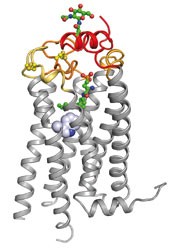
- Select a language for the TTS:
- UK English Female
- UK English Male
- US English Female
- US English Male
- Australian Female
- Australian Male
- Language selected: (auto detect) - EN
Play all audios:
Has Sir Keir Starmer mislaid his conscience? Is winning the next general election so all-consuming that the Labour leader’s head invariably rules his heart? Starmer was recently asked by LBC
radio’s astute interviewer Nick Ferrari if “a siege — cutting off power, cutting off water ” to Gaza was a proportionate response to the massacre by Hamas on October 7. Innocent civilians
in Gaza are dying in their thousands. Basic necessities – food, water, fuel, medicines – are in critically short supply. A siege may be a death sentence, especially for the young, the
elderly and the vulnerable. “Yes,” Starmer said diffidently: Israel did have the right to defend itself. You could see the cogs turning. Having banished the spectre of anti-Semitism from his
party, he wasn’t about to offer a hostage to fortune during the last party conference before a general election. I don’t believe for a moment that Starmer meant to condone the killing of
Palestinian civilians. He made a split-second political calculation live on air, not out of conviction, but expediency. But he badly misjudged the depth of feeling in the party at the plight
of ordinary Gazans — especially among British Muslims. Labour’s metro-mayors Sadiq Khan and Andy Burnham, both running cities with large Muslim populations, broke ranks and called for a
ceasefire. So did the leader of the Scottish Labour party, Anas Sarwar, who (like his SNP rival, the Scottish First Minister Humza Yousaf, has family in Gaza. Starmer will come back from
this. Labour remains a staunch supporter of a two-state solution and a fair deal for Palestinians. A formula will be found to keep the party together. It has come too far to falter over a
loose phrase. But the question keeps popping up: What is Starmer in politics for? Is this ex-human rights lawyer a champion of the underdog, the marginalised, the dispossessed? Is he a
fighter for social justice? Or is he another company man — a technocrat — who plays the odds? Starmer famously helped two penniless Greenpeace activists beat back a defamation lawsuit by
fast-food giant McDonald’s in the 1990s, in a landmark case upholding free speech. The so-called McLibel Two had distributed a handful of leaflets outside a couple of McOutlets titled
“What’s wrong with McDonald’s.” The multinational sued for defamation in the UK courts and won. Leave to appeal to the House of Lords was refused, so they took the case to the European Court
of Human Rights (EHCR) — with Starmer’s help. The EHCR found that the two had been denied a fair trial because they were refused legal aid. The case rewrote the rules. Big corporations
trying to silence critics by threatening to bankrupt them through a legal system heavily skewed in their favour were no longer immune. I do not wish to trivialise the suffering of the people
of Gaza or Israel by drawing reductionist analogies. But suffering, to the sufferer, is by definition, relative. Fairness and justice, however, less so. These are the impulses that bind
progressive parties together and should be the core aim of any such party seeking power. Which poses the question: why is Starmer not raising Cain about the victims of injustice in his own
backyard? It’s not as if there is a shortage of injustice or of underdogs. What better definition of an underdog than the hundreds of sub-postmasters falsely convicted of fraud — harassed,
bankrupted and in some cases driven to suicide because of a faulty computer system? The Post Office scandal is, by a country mile, the most shameful miscarriage of justice in British legal
history. Why is Starmer’s team not all over it? Then there is the Grenfell Tower tragedy. How many are waiting to be rehoused or receive compensation? And Windrush? How many have died
without restitution? HS2: a first-class piece of investigative reporting by The Times details how highly paid HS2 executives, according to whistle blowers, covered up cost overruns in the
billions, while entire communities in its path were bulldozed into oblivion. This is a perfect hunting ground for a party led by a former Director of Public Prosecutions. Then there’s the
great Covid disaster: unscrupulous private companies, fast-tracked by friendly politicians, trousered millions of taxpayers’ money in return for providing Personal Protective Equipment (PPE)
which all-too-often didn’t work. To her credit, the Shadow Chancellor, Rachel Reeves, has said she will go after the fraudsters. Power attracts power. Political parties that succumb to
corporate lobbying are old news. Starmer is on the threshold of power, so the corporate sector is shovelling money at Labour. The business world flocked to the Labour conference in
Liverpool. Starmer’s argument for never deviating from the centre, leaving as little room as possible for the Tories to portray him as soft, is utilitarian, simple and compelling. Without
winning power, change is impossible. It means reshaping Labour by dragging the party onto the centre ground and erasing Jeremy Corbyn’s legacy by being seen as business-friendly. It means
not saying anything that could remotely be interpreted as anti-Semitic (or in time of war anti-Israeli) is therefore essential. That’s a perfectly logical position. Labour’s love of
martyrdom over power is largely why progressive politics in Britain has moved in fits and starts since World War II. But the impulses that drive the centre-left are surely universal:
fairness and a level playing field. What ties a Palestinian, just like his Israeli neighbour, to a sub-postmaster in Hertfordshire whose life has literally been destroyed, or a victim of the
Grenfell fire or of the injustice of Windrush scandal, is a desire for justice and equal treatment. Faith in politics and its ability to deliver a better future for more than a tiny
minority of the rich and the powerful is at rock bottom. Politics has become a clash of identities fuelled by politicians – like Victor Orban — who see an advantage in labelling their
opponents as “other”. But, from the refugee camps of the Middle East (or Myanmar or Venezuela) to the sink estates of Middlesborough, hope of a square deal (and in some cases a square meal)
is fading. Starmer’s refusal to call for a ceasefire in Gaza springs perhaps from a desire to be seen as grown-up on the world stage. Or perhaps he wishes to march in lock-step with the
United States in anticipation of his first visit to the White House as the next British Prime Minister. But there is more to leadership than being a grown-up. There is that little voice
inside us that we call principle or, if you prefer, conscience. Starmer needs to locate his principles and his conscience before he becomes indistinguishable from the party he seeks to
replace. A MESSAGE FROM THEARTICLE _We are the only publication that’s committed to covering every angle. We have an important contribution to make, one that’s needed now more than ever, and
we need your help to continue publishing throughout these hard economic times. So please, make a donation._







